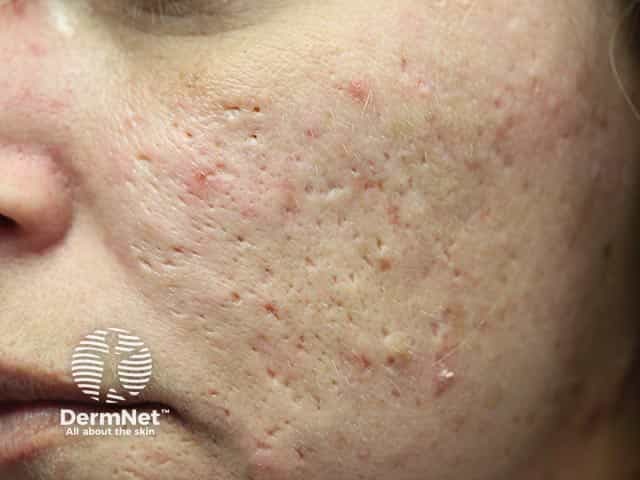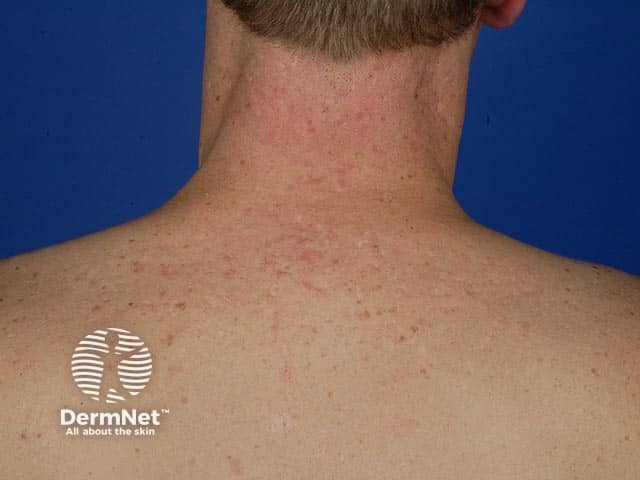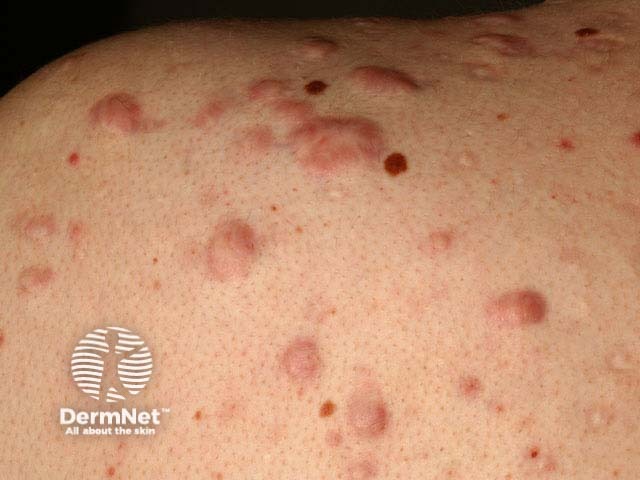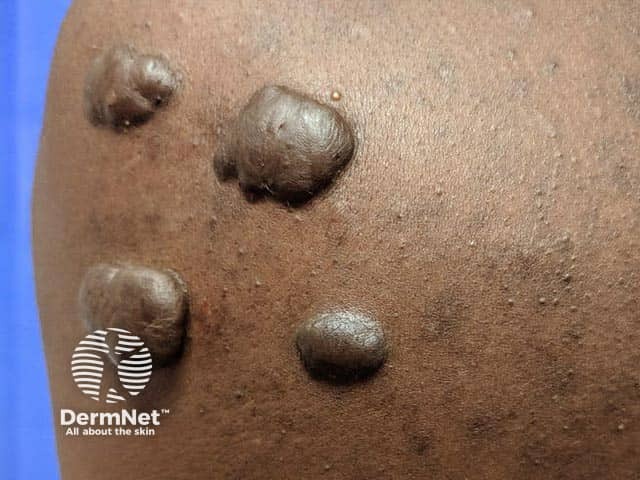Main menu
Common skin conditions

NEWS
Join DermNet PRO
Read more
Quick links
Last Reviewed: May, 2024
Adapted by Dr Libby Whittaker, DermNet Medical Writer (2024) from original content written by Dr Vidette Wong (2023), Dr Amanda Oakley, and Vanessa Ngan.
Reviewing dermatologist: Dr Ian Coulson (2024)
Edited by the DermNet content department
Acne is common, and can cause long-lasting scarring. Once the active redness and swelling (inflammation) of acne has settled, many people are interested in treatment to reduce the scars left behind. Read more about different options for treating acne scarring below.
The treatment options that might be right for you depends on a few things, including:

Ice pick scars on the cheek

Atrophic scars on the upper back (AS-patient1)

Hypertrophic scars on the back
Makeup may be helpful for disguising acne scars, particularly those on the face.
Resurfacing procedures aim to blend acne scars into the surrounding skin by removing the top layer of skin (epidermis) to smooth out scar edges and encourage new, healthy skin cells to grow. This process may be done using:
Multiple treatments may be needed to achieve the best possible result.
Lifting procedures aim to lessen the dips or hollows in the skin that are left behind in some kinds of acne scarring. This may be done using:
Sometimes acne scars are cut out completely, particularly if they are large, deep, or have healed up abnormally. This gives the area a chance to heal over again, hopefully forming a more subtle scar.
The surrounding skin may be stitched directly together; or the wound may be filled with a flap of healthy skin (graft) taken from elsewhere, such as behind the ear.
Large raised or overgrown scars (called keloid or hypertrophic scars) can also be triggered by acne. Sometimes these types of scars may grow back after being removed.

Raised tender shoulder keloid scars (AS-patient5)
In addition to some of the treatments described above, other options that can be tried for hypertrophic and keloid acne scars include:
As well as treating existing scarring, other habits to help keep your skin happy may reduce the chance of future acne flare-ups and further scars. For example:
If you are dealing with acne or acne scars, see your doctor to discuss what treatment options might be right for you.
For more information about acne and its treatment, see: